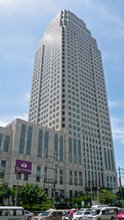From the Bangkokpost
Government efforts to stimulate the property market should not neglect other sectors of the economy says Srettha Thavisin, the president of Sansiri Plc.
Tourism and foreign investment are also areas that need attention, and the government must revive Thailand's image as a foreigner-friendly country.
''Regulations have been enacted that might mislead foreigners,'' he said, emphasising that Thais are not xenophobes, despite foreign investment rules that some feel may be draconian.
Mr Srettha fully supported the planned reduction in the property transfer fee to 0.01% from 2% and special business tax to 0.1% from 3.3%, and urged the government to implement it quickly, rather than raise hopes by just talking.
''[Raising investor hopes] also leads to manipulation in the stock market. Property stocks might rise and then get dumped, so it's better not to talk, if you are going to call a committee meeting or call people in for consultation, do so quietly, it's not good to announce it.
''Best not to talk if you are going to do it then do it, if not then don't.''
However Mr Srettha is optimistic that the protracted political uncertainty will be settled. ''It's Thai people's nature to reach a compromise, eventually all the problems will be resolved, the question is when, that's all.''
Sansiri has been unscathed by confidence-sapping events such as the Dec 31 unscathed Bangkok bombings, and has been able to sell units at all of its projects. One reason for this is falling interest rates, which has encouraged people to seek alternative investment channels.
''People might search for other investments, they might buy other assets that could appreciate in value, they could sell over the long term or give it out for rent.''
As Mr Srettha sees it, the impact of the current turbulence is mainly being felt in the budget condominium segment of the inner city condo market and not at the high-end where his company is positioned.
A good example is the Baan Siri 24 condominium near The Emporium shopping centre that initially fetched 70,000 baht per square metre but now has reached 120,000 baht per square metre.
These gains lead to Mr Srettha's confidence in the face of challenges posed by foreign developers in Thailand.
While condominiums developed by some foreign property developers are not cheap, Mr Srettha pointed out that his company is able to achieve higher prices with its Baan Ratchadamri project almost reaching 200,000 baht per square metre.
''It's good competition, it makes developers who are already in the city with roots here fight harder and become stronger _ the winner is the customer.''
Thai condominiums are much cheaper than in Hong Kong, where prices are five to ten times higher, and if obstacles such as post-financing and ownership status are cleared, then the market can improve.
Fewer than 10% of Sansiri's condominiums are owned by foreigners. ''I am certain many people want to buy but the rules and regulations in Thailand are not clear.''
Mr Srettha is in favour of allowing foreigners to lease land for 60 to 90 years from the legally permitted 30-year term, pointing out that whenever foreign buyers leave they will sell the land to Thais and in the end the land will belong to Thais.
Many developing countries, particularly in Latin America, permit foreigners to buy land outright.
Although there has been speculation that the airport-city rail link could draw development to areas around Phetchaburi and Pattanakarn roads, Mr Srettha believes the link will only benefit local residents and government facilities moving there.
He also speculated that senior executives will continue to live closer to the city and Silom, Sathorn, Wireless and Sukhumvit roads will continue to be prime areas for condominium development even though vacant land has decreased substantially.
Turning to speculators and investors, Mr Srettha said they can buy at their own risk but regardless, location is the most important consideration. Investors should also carefully consider the project's specifications and look at the developer's track record to ensure that they deliver in their promises. They should also be mindful of the fact that there are many first-time developers in the market right now.
''Something that is good will always have value. If something is only trendy, then once completed, if it's not good, then you're in trouble,'' he says.


